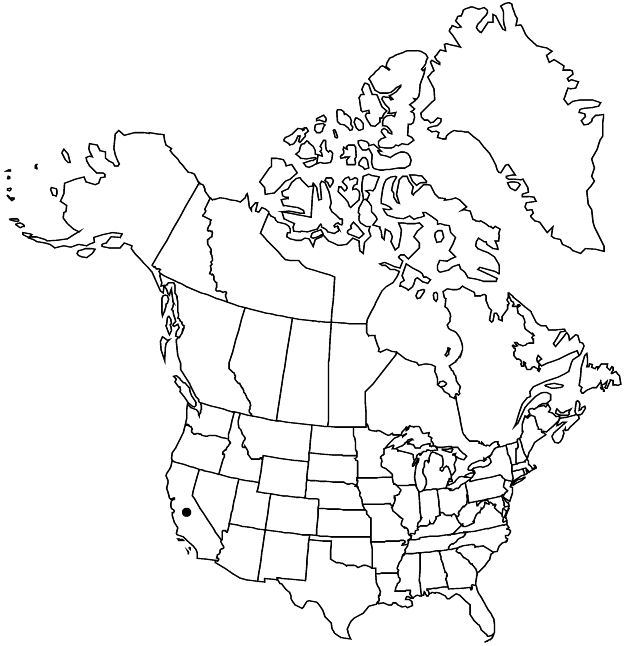Euphorbia jaegeri
Aliso 30: 1, figs. 1–4. 2012.
Shrubs, with woody rootstock. Stems ascending, diffusely and intricately branched, 15–25 cm, usually puberulent to shortly hirsute, sometimes glabrate, bark grayish. Leaves opposite; stipules distinct or connate, subulate, 0.3–0.5 mm, puberulent; petiole 0.7–1.1 mm, puberulent to shortly hirsute; blade ovate or elliptic, 3–9 × 1.5–5 mm, base symmetric to slightly asymmetric, rounded to cuneate, margins entire, apex usually obtuse, sometimes acute, surfaces puberulent to shortly hirsute; 3-veined from base, often only midvein conspicuous. Cyathia solitary at distal nodes; peduncle 0.5–1.7 mm. Involucre obconic to campanulate, 1.2–1.8 × 1.1–1.4 mm, puberulent to shortly hirsute; glands 4, yellow to pinkish, elliptic to oblong, 0.3 × 0.4–0.5 mm; appendages white to pink, 0.2–0.7 × 0.6–1.2 mm, irregularly divided from halfway to nearly base into 4–8 triangular to subulate segments, segments entire. Staminate flowers 25–30. Pistillate flowers: ovary canescent; styles 0.3–0.4 mm, 2-fid entire length. Capsules oblate, 1.7–2.3 × 1.8–2.7 mm, puberulent; columella 1.4–2 mm. Seeds tan to grayish, narrowly oblong-ovoid, ± 3–4-angled in cross section, 1.4–1.5 × 0.7–0.9 mm, irregularly dimpled or with faint transverse ridges that do not interrupt abaxial keel.
Phenology: Flowering and fruiting fall–spring.
Habitat: Desert scrub, hillsides, arroyos, primarily in rock crevices.
Elevation: 600–900 m.
Discussion
Euphorbia jaegeri is known only from the Orocopia Mountains of Riverside County and the Bristol and Marble Mountains of San Bernardino County. The species is one of few shrubby species of sect. Anisophyllum in the flora area.
Selected References
None.
